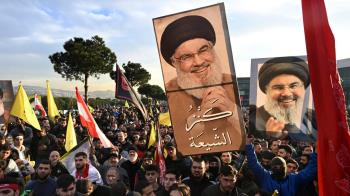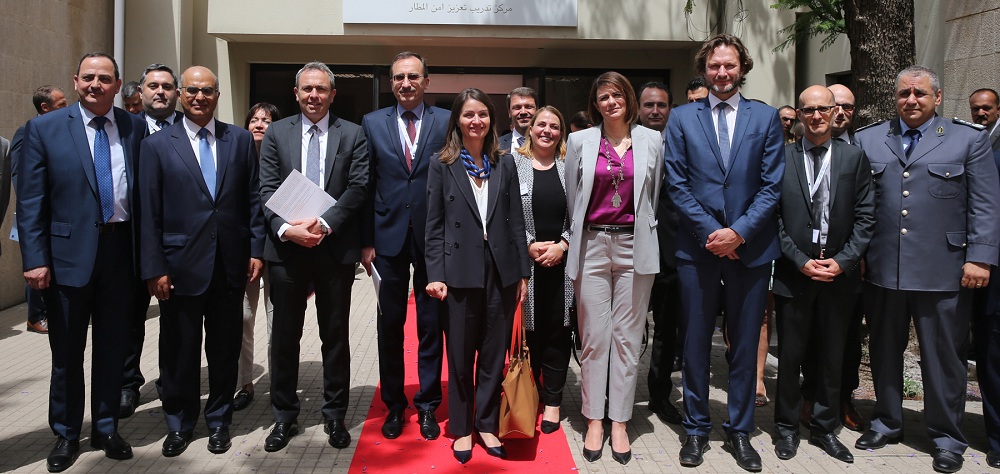Alwaght- The several-month political stalemate in Lebanon for election of a successor to President Michel Aoun, the big economic challenges in recent years that led to national currency value slump, and a 70-percent poverty rate have paved the way for interference of foreign actors in home affairs of the Arab country under the cover of supporting the nation. For example, last week, a European judicial delegation visited Beirut to probe corruption cases and port explosion, a move that left the Lebanese judicial officials unhappy with the brazen Europeans disregard of Lebanon’s national sovereignty and isolation of the country’s judiciary from two most important cases of recent years.
As part of its interventions, later last week, and after many hemmings and hawings, France announced that in the first week of February, it will revive the mechanism known as the Paris conference on Lebanon with the participation of countries such as Saudi Arabia, the US, Qatar, and possibly Egypt.
Diplomatic sources announced on Friday that the international conference on the future of Lebanon will be held on Monday, February 6, in Paris.
The last Paris conference was held in August 2021. According to reports, at that meeting, the participants collected about $370 million in humanitarian aids for Lebanon. The French government has announced that it is trying to focus on service and humanitarian affairs in the new meeting in association with the above-mentioned countries. According to Al-Akhbar newspaper, the Paris meeting commits to the Taif Agreement and international resolutions, and emphasizes the election of a president and the formation of a government that enjoys the trust of the international community and commits to implementation of economic reforms.
One of the cases that Paris is working on is facilitation of power exports from Jordan and gas from Egypt. Lebanese media said that Jordan would be likely invited to the conference.
In the meantime, political sources and Lebanese media outlets such as Al-Akhbar have reported that hopeful expectations about the five-party meeting in Paris are “exaggerated”.
One of the reasons for this skepticism is that the level of participants is not high-ranking. It is expected that in this meeting Barbara Leaf, US Assistant Secretary of State for Middle East Affairs, Nizar Al Alullah, advisor to the royal court of Saudi Arabia, Mohammed bin Abdulaziz Al-Khalifi, the aide to the foreign minister of Qatar, and Patrick Dorrell, the Elysee Palace’s advisor for Arab world who is a member of the Lebanese Crisis Group, would represent their countries.
Citing these sources, Al-Akhbar reported that “the problem is that the participants have different interests and conditions, especially Saudi Arabia, which refuses any agreement against its goals and interests.”
In the past months, the Saudis have put a lot of pressure on the groups close to them in the March 14 Alliance, especially the Lebanese Forces party led by Samir Geagea, to maintain their disagreement with Hezbollah and its Christian ally, the Free Patriotic Movement (FPM), over the political process.
Some resources held that France is specifically interested to circumvent the Saudi considerations and guide the participants to the political issues related to president election. However, seeking to maintain the pressures against Hezbollah and its allies through putting the skids under election of president, the US and Saudi Arabia, are pursuing economic reforms to draw a border between Hezbollah and new government. However, everybody is well aware that no coalition can form a government without Hezbollah. Thus, the American and Saudi insistence on the road map, dubbed Kuwait initiative, will only perpetuate the political impasse.
It is noteworthy that when in 2022 comments by Lebanon’s Information Minister George Kordahi on Yemen war drew Saudi anger and the (Persian) Gulf Cooperation Council states recalled their ambassadors from Lebanon, the Kuwaiti Foreign Minister Ahmad Naser Al-Sabah presented a 12-point condition list to settle the crisis. However, it soon became clear that the so-called initiative was actually a set of interventionist conditions to humiliate Lebanon.
The conditions included calls for Lebanon commitment to all terms of Taif Agreement and also commitment to a policy of neutrality in regional issues in words and action, and also setting a timetable for implementation of the UN’s 1559 resolution that calls for Hezbollah disarmament. However, the Lebanese rejected the initiative, arguing that it was in violation of their national sovereignty and independence. But Saudi Arabia is still insisting on its revival.
Another reason the Lebanese people and the political observers are not optimistic about the outcomes of Paris meeting for easing the political and economic crises is the opposition of some Lebanese political parties to the domineering approach of these countries to election of president. Despite quitting his bid for presidency, Gebran Bassil, the former PM and the current head of FPM, still resists foreign imposition of presidential candidates on the parliament. He has support of Hezbollah and its allies that make a strong barrier ahead of foreign agenda.
There is no doubt that none of the presidential candidates can promise commitment to foreign demand for removal of Hezbollah from political life and its exclusion from the government, and therefore, Saudi Arabia’s role in the Paris conference will only increase the challenges of this meeting that looks for a tangible achievement.
Definitely, Hezbollah’s power and determining role is not something even its enemies can ignore. There is an idea that one of the cases of discussion in Tehran of the Qatari foreign minister some days before Paris conference was attraction of Iranian and Hezbollah cooperation to avoid Paris meeting failure. Certainly, the countries going to Paris meeting have realized that without an agreement with Hezbollah, they cannot develop a plan to work out a comprehensive solution to the situation in Lebanon, and this is what Qatar has undertaken to achieve a consensus among the participants.
An evidence of Qatar’s role and coordination with the US is the signing of participation contract for oil and gas exploration in Block 4 and Block 9 in Lebanese waters between Qatar Petroleum and the French and Italian companies of Total and Eni, something usually not happening without international coverage, especially given the sensitivity of the US-mediated Israeli-Lebanese sea border agreement for Washington which was achieved after years of tensions.



























